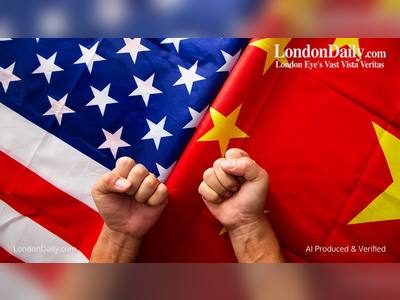UAE-US Stargate Project Poised to Make Abu Dhabi a Global AI Powerhouse
A new five-gigawatt AI campus to begin operations in 2026, as UAE diversifies away from oil and strengthens strategic ties with the United States
Abu Dhabi is sprinting toward a commanding position in global artificial intelligence with the unveiling of the “Stargate UAE” project, a multi-gigawatt campus that aims to become the largest AI data centre complex outside the United States.
The first phase—set to provide two hundred megawatts of AI computing capacity—is scheduled to begin operations in 2026, and full build-out is planned for five gigawatts.
Developed by the UAE firm G42 in partnership with OpenAI, Oracle, Nvidia, Cisco, and Japan’s SoftBank, the campus will sprawl across ten square miles in Abu Dhabi.
The infrastructure will combine nuclear, solar, and gas power to balance performance and sustainability.
The facility is designed to serve not only the UAE but the wider Middle East, Africa and South Asia, enabling high-performance, low-latency access to AI tools and cloud services for populations within about three thousand two hundred kilometres.
An important component of the agreement reached during the high-profile state visit of the U.S. president involves the easing of previous export-control restrictions on advanced AI chips.
Under the new framework, the UAE is expected to import up to five hundred thousand of Nvidia’s advanced AI chips per year.
Tighter oversight and security guarantees are included in the deal to align with U.S. export and national security standards.
UAE ambitions extend beyond mere infrastructure.
Its National Strategy for Artificial Intelligence 2031 has pushed for embedding AI in public administration, education, and economic diversification, seeking to build sovereign capacity in governance, regulation, and digital services.
Institutions such as the Mohamed bin Zayed University of Artificial Intelligence and local research bodies are central to these plans.
However, the project does carry substantial geopolitical cost and risk.
The UAE must manage concerns from multiple quarters, including potential Chinese influence and dependency, safeguarding of data and AI governance standards, energy costs, and ensuring regulatory and ethical frameworks keep pace with technological growth.
U.S. observers are especially focused on whether security safeguards will be enforced and whether export-control relief might lead to technology transfer that could benefit competitors.
If successful, the Stargate project could reshape how power is projected in the digital age.
Abu Dhabi stands to deepen its role as both a regional hub and a global player: supplying compute capacity, influencing the rules of data sovereignty, and enabling emerging markets to access AI tools.
With the U.S. collaborating closely in oversight and provision of cloud services, the project also signals a shift in how global AI leadership may be shared or distributed in the coming decade.
The first phase—set to provide two hundred megawatts of AI computing capacity—is scheduled to begin operations in 2026, and full build-out is planned for five gigawatts.
Developed by the UAE firm G42 in partnership with OpenAI, Oracle, Nvidia, Cisco, and Japan’s SoftBank, the campus will sprawl across ten square miles in Abu Dhabi.
The infrastructure will combine nuclear, solar, and gas power to balance performance and sustainability.
The facility is designed to serve not only the UAE but the wider Middle East, Africa and South Asia, enabling high-performance, low-latency access to AI tools and cloud services for populations within about three thousand two hundred kilometres.
An important component of the agreement reached during the high-profile state visit of the U.S. president involves the easing of previous export-control restrictions on advanced AI chips.
Under the new framework, the UAE is expected to import up to five hundred thousand of Nvidia’s advanced AI chips per year.
Tighter oversight and security guarantees are included in the deal to align with U.S. export and national security standards.
UAE ambitions extend beyond mere infrastructure.
Its National Strategy for Artificial Intelligence 2031 has pushed for embedding AI in public administration, education, and economic diversification, seeking to build sovereign capacity in governance, regulation, and digital services.
Institutions such as the Mohamed bin Zayed University of Artificial Intelligence and local research bodies are central to these plans.
However, the project does carry substantial geopolitical cost and risk.
The UAE must manage concerns from multiple quarters, including potential Chinese influence and dependency, safeguarding of data and AI governance standards, energy costs, and ensuring regulatory and ethical frameworks keep pace with technological growth.
U.S. observers are especially focused on whether security safeguards will be enforced and whether export-control relief might lead to technology transfer that could benefit competitors.
If successful, the Stargate project could reshape how power is projected in the digital age.
Abu Dhabi stands to deepen its role as both a regional hub and a global player: supplying compute capacity, influencing the rules of data sovereignty, and enabling emerging markets to access AI tools.
With the U.S. collaborating closely in oversight and provision of cloud services, the project also signals a shift in how global AI leadership may be shared or distributed in the coming decade.









